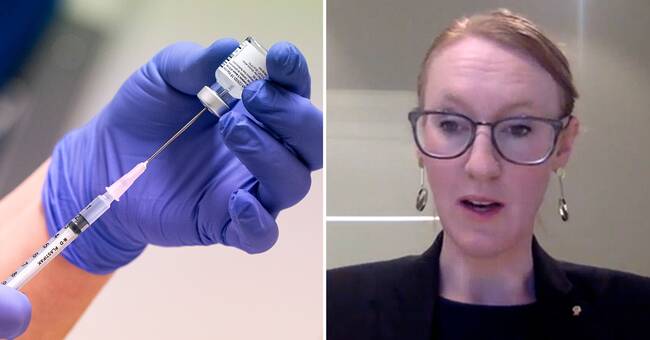Both Pfizer, Moderna and Astra Zeneca have been forced to reduce the original levels of vaccines to be delivered to EU countries.
Several regions have warned that the vaccination will therefore take longer than planned.
- The companies have promised quite a lot of vaccines and they have planned based on these preliminary forecasts, says Emma Spak.
Important with clarity
One problem for the regions is the lack of predictability.
The number of doses you receive per week is often confirmed with just a few days' notice.
The problem lies largely with the manufacturers, says Emma Spak.
- It is incredibly important that companies are early and clear in their communication to the countries and authorities so that they in turn can be clear to the regions.
Just a few days notice is a very short time.
The unpredictability creates extra jobs and uncertainty for the regions' vaccine coordinators.
- It will be a very puzzling one.
You have to sit down to the last detail and think about how to distribute the vaccine.
If you get a much smaller volume, you should then send in a small portion to all vaccinators or you should completely cancel the vaccination at certain health centers.
- But they do this work and are prepared to do it because it is so important that all vaccine doses are used.
The capacity is there
No region states that there is a lack of capacity to vaccinate, according to Emma Spak.
Many were ready to start the second vaccination phase as early as the beginning of February.
- You are prepared as soon as the doses come, she says.
A wishful scenario would have been for the vaccine to be delivered with a smoother flow, Emma Spak explains.
- It would have facilitated the work.
But we know that this is difficult.

